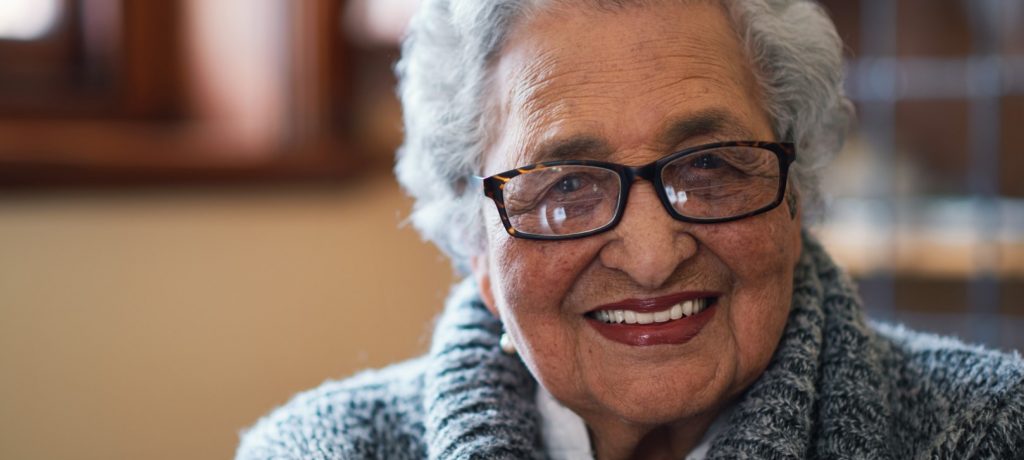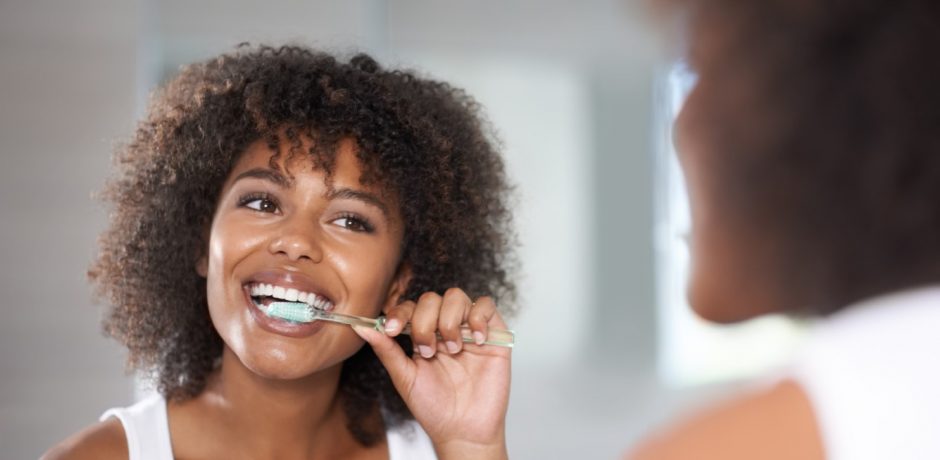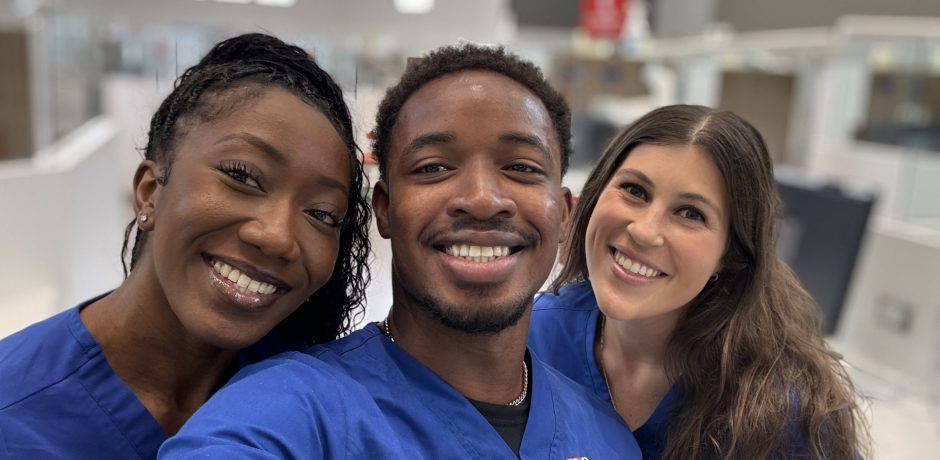While a healthy smile is important for people of any age, did you know seniors can face increased health risks if they don’t take care of their smiles?
Factors such as dry mouth from medications can accelerate the effects of gum disease for seniors and lead to tooth loss, which affects 20% of people 65 and older. Plus, pain or missing teeth can make it hard to eat, affecting nutrition. Infection can also impact other health conditions such as heart disease, diabetes, or stomach issues. Add the fact that older people are more susceptible to oral cancers, and it’s easy to see why dental care for seniors is even more critical than before.
Fortunately, following these top dental-care tips from Penn Dental Medicine at PHMC Public Health Campus on Cedar can keep you or an older loved one in your care smiling brightly.
7 Top Tips To Follow for Dental Care for Seniors
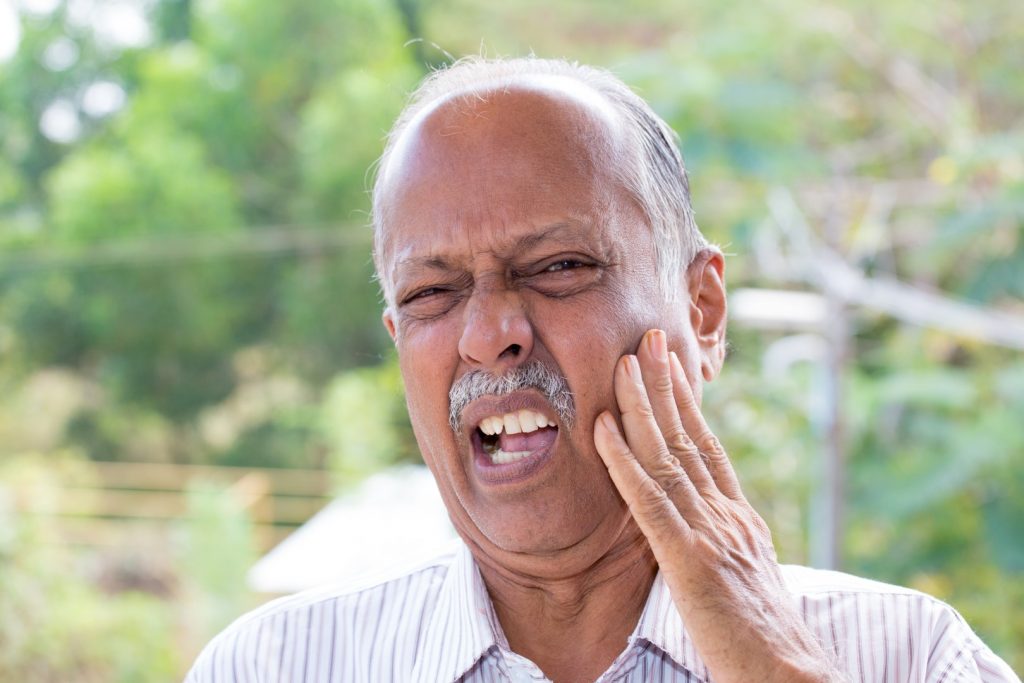 In many ways, senior teeth care is similar to routines you followed throughout your life, but there are some key differences.
In many ways, senior teeth care is similar to routines you followed throughout your life, but there are some key differences.
1. Brush and floss daily. No change here. Brushing twice daily and flossing once a day continue to be recommended to help clear away plaque buildup.
- When plaque builds up, it eats away at tooth enamel and causes cavities and decay, which can lead to gum disease (periodontal disease). Experts believe that gum disease and tooth decay are the biggest threats to dental health. If unchecked, gum disease can lead to swollen, bleeding gums, bone loss, and loose or lost teeth.
2. Rinse your mouth and drink plenty of fluoridated water. This helps combat dry mouth caused by medications and flushes away food particles and bacteria. Chewing sugarless gum can also help relieve dry mouth.
3. Clean full or partial dentures every day and remove them at night. Just like with your natural teeth, cleaning these helps keep gums from becoming inflamed or developing infections.
4. Eat a healthy diet that isn’t full of sugar. This not only helps with your oral health but with your overall health, too.
5. Stop smoking and limit alcohol. The average age of people diagnosed with oral cancer is 64. Using tobacco and drinking alcoholic beverages individually can cause oral cancers, but doing both can significantly raise the risk about 30 times higher. Eliminating tobacco and alcohol can help lessen the risk of it developing.
6. Watch your mouth for changes. Check for:
- Signs of irritation, such as swollen, red, or bleeding gums.
- Unusual sores, red or white patches, or lumps in gums, cheeks, or tongue.
- Yellowed teeth (a sign of poor oral hygiene) or loose teeth (a sign of gum disease).
Share any changes with your dentist so they can be evaluated quickly and any necessary treatments provided.
7. Visit your dentist twice a year. Along with X-rays at one of the visits, these cleanings and exams help keep your plaque buildup to a minimum, nip decay in the bud, and allow your dentist to treat issues promptly.
When a Caregiver Is Involved
If you are responsible to help with dental care for a senior, follow these tips with them. You may need to assist them if difficulties arise or they are unable to do so because of physical limitations (strength, mobility, hearing, or eyesight) or cognitive decline such as dementia. Your PDM at PHMC on Cedar dentist can advise you on how to work with your senior to get the best results for their situation.
Make an Appointment at the Top Provider of Dental Care for Seniors in Philadelphia
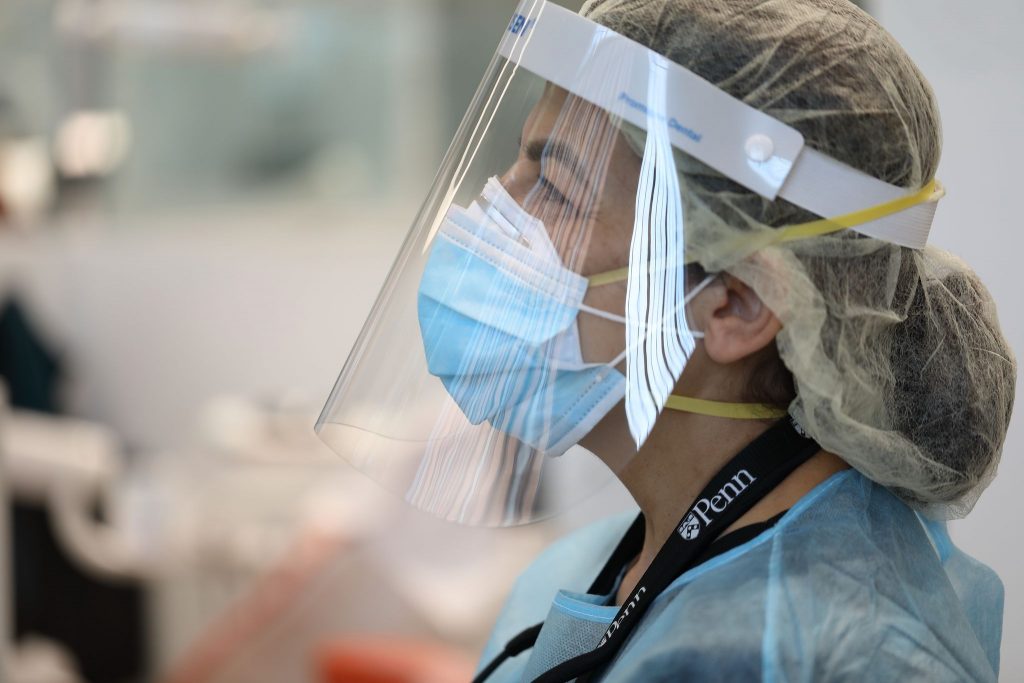 We provide a full range of dental services at our state-of-the-art Penn Dental Medicine location at the PHMC Public Health Campus on Cedar (501 S. 54th St. in Philadelphia), including:
We provide a full range of dental services at our state-of-the-art Penn Dental Medicine location at the PHMC Public Health Campus on Cedar (501 S. 54th St. in Philadelphia), including:
- General Dentistry: fillings, crowns, bridges, making dentures, cleanings, and more.
- Oral Medicine: diagnostic biopsies, therapeutic injections, topical and oral medications, minor surgical procedures, and excisions.
- Periodontics: gum disease treatment.
- Prosthodontics: restoring and replacing teeth.
- Oral Surgery: extractions of teeth.
- Custom care for patients with disabilities and special needs.
Pediatric care is also provided for our younger patients.
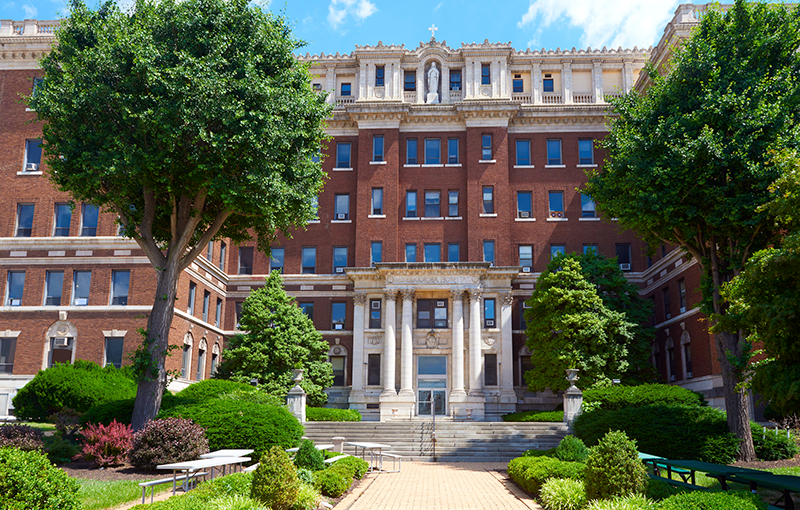 Just like at our other Penn Dental Medicine teaching clinic locations at 240 S. 40th Street, you’ll be treated by a unique combination of faculty from one of the nation’s top dental schools at an affordable rate that is 50%-70% lower than at private practices. And PDM at PHMC on Cedar offers a range of other medical services provided by Penn Medicine, making it a one-stop destination for your healthcare needs.
Just like at our other Penn Dental Medicine teaching clinic locations at 240 S. 40th Street, you’ll be treated by a unique combination of faculty from one of the nation’s top dental schools at an affordable rate that is 50%-70% lower than at private practices. And PDM at PHMC on Cedar offers a range of other medical services provided by Penn Medicine, making it a one-stop destination for your healthcare needs.
When you’re ready to make an appointment at PDM at PHMC on Cedar for yourself or a loved one who needs elderly dental care, please don’t hesitate to call us at 855-887-9229 or complete this form. We look forward to having the opportunity to help you protect and preserve your smile.

